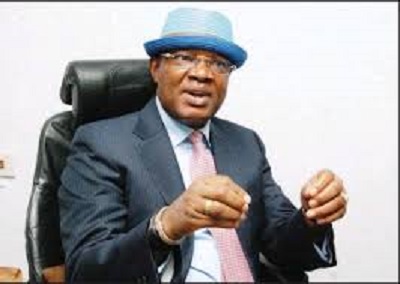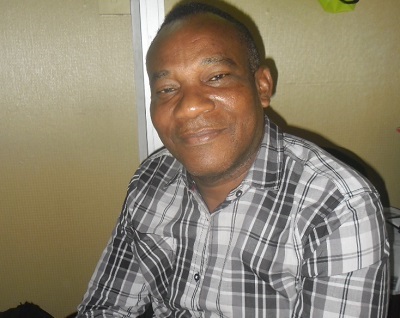Why The NIMASA NSDP Failed – Akinsoji

By Kenneth Jukpor
Engr. Olu Akinsoji is a former Rector of Maritime Academy of Nigeria (MAN), Oron and also a former Alternate Representative of Nigeria at the International Maritime Organization (IMO) Council. In this interview with MMS Plus, he reveals why the Nigerian Seafarers Development Programme (NSDP) has recorded minimal success in the nation’s maritime sector. He also appraises the Sealink project and expounds on the template the six-man committee provided to reposition MAN, Oron.
Excerpts:
Ten years after the Nigerian Seafarers Development Programme (NSDP), it is yet to solve the problem of dearth in seafarers in the country, how could the programme be modified?
The maritime sector is one that requires thorough planning and I’m still in the dark with regards to the plans NIMASA has for NSDP. I don’t want to criticize the programme or comment harshly. I was a party to the initiative but as soon as we came up with the idea they implemented it without making any solid plans. Right now, I don’t think they have developed a plan but training seafarers is something that requires concrete plans for shore based training, Seatime training and opportunities for placement on ships. Nigeria doesn’t have ships and you need to have a robust plan with the developed countries to enable you put these cadets onboard foreign ships for Seatime experience. These seafarers need to be engaged and stay onboard vessels long enough to rise as senior officers like Chief Engineers and Master Mariners. All these processes require planning and I don’t think any country would want to train other nation’s citizens to compete with them in the trade which they are also participating.
These are things that ought to have been in the plan from the onset. It was this lack of proper planning that has seen the nation lose so much revenue and yet the future prospects of the profession remains bleak.
The Sealink project seems to be getting headway and there are expectations that the regional projects would quell some of the challenges associated with lack of indigenous vessels. What’s your take?
The sealink project is a fantastic initiative. Nigeria is potentially rich but the problem is that the nation isn’t harnessing its potentials. With sealink project, which is an African concept but driven mostly by Nigeria, we can begin to set things right for the nation and the whole of Africa because the project intends to generate the cargoes for the vessels. Sealink is combining shipping, transshipment and generation of cargo and in this process we are also going to generate a lot of employment.
The initiative is one that every stakeholder in the maritime industry should long to be part of. It may take some time before it comes onboard but it is a project that would bring a lot of progress for shipping in the country and the continent at large.
You were part of the six-man committee tasked to reposition the Maritime Academy of Nigeria (MAN) Oron. What were the recommendations and how would you rate the academy now?
The members of the interim management committee have concluded the task and handed over the recommendations to the Rector who was also a member of that committee. After the committee left, there has also been an inauguration of the substantive board. From an institutional perspective, the academy is substantial now because it has a board and rector. The academy is presently operating in accordance with the instruments that established it.
I believe that the blueprint which we left behind will be useful instruments for the board as well as the rector for them to give the academy accelerated development.
We found that that there were several substandard structures and recommended that there should be more equipment. There was also the need to rejig the curriculum which needed to be updated to be at par with modern developments in global seafarers Standards of Training and Certification Board.
We also believed that there should be incentives for employing professionals to enhance professional trainings. The institution should have more professionals like Master Mariners and Chief Engineers that are young people interested in having a teaching career. We also stressed that there should be less emphasis on administrative and more emphasis on academics, while we highlighted the need to train the trainers.
There should also be evaluation and quality control training in line with the position of the Standards of Training, Certification and Watchkeeping for Seafarers (STCW). Most of the issues we outlined during our meetings are the fundamental issues for the good foundation of any maritime training institution. If the academy could follow these tenets judiciously we believe that the academy would get to the altitude in a very short time.
After spending several years at the heart of the nation’s maritime activities for decades, with benefits of hindsight do have any regrets?
I’m enjoying the peace and tranquility in Abeokuta, Ogun State as a retired civil servant. I don’t have any other passion other than the maritime industry and I still make myself available when I’m invited for programmes, conferences and other meetings. I have no regrets because I played my part in the nation’s maritime sector and I thank God that he gave me all the opportunities I had to play the role I played. I believed that I touched every area of my profession and it was at the topmost level. So, I would always be keen to discuss with the government to provide solutions for the growth of the industry.






